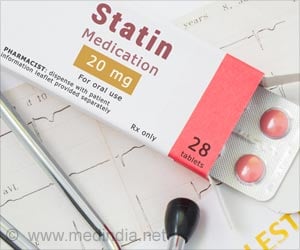New review shows available psoriasis treatments differ in terms of how they affect a patient's likelihood of experiencing adverse cardiovascular events.

‘New review shows available psoriasis treatments differ in terms of how they affect a patient's likelihood of experiencing adverse cardiovascular events.’





Professor Min Chen of the Chinese Academy of Medical Sciences and the Peking Union Medical College has conducted extensive research on psoriasis. "There are many patients with psoriasis who also have cardiovascular diseases, such as hypertension, diabetes, hyperlipidemia, and coronary heart disease," she notes. The presence of such cardiovascular diseases is an important consideration when treating patients with psoriasis because, as Prof. Chen explains, "Some of the drugs for psoriasis may increase the risks of these diseases, while some can reduce them." Now, in a recent review article published in Chinese Medical Journal, Prof. Chen and her colleagues provide a summary of the existing scholarly knowledge concerning the associations between the different treatments for psoriasis and risks of cardiovascular diseases.
They note that some psoriasis treatments, such as tumor necrosis factor-α (TNF-α) inhibitors and methotrexate may actually reduce long-term MACE risk.
Conversely, they also note that some interleukin (IL) inhibitors may increase MACE risk. For example, the IL-12/23 inhibitor briakinumab increased MACE risks so much across multiple studies that investigators had to suspend all clinical trials. However, other IL inhibitors such as tildrakizumab and guselkumab do not appear to increase MACE risks. The widely used immunosuppressant cyclosporine A can cause damage to heart muscle tissues. Ultimately, these findings indicate that more research is needed before scientists can rank psoriasis treatments in terms of their effects on long-term MACE risks.
There is currently no consensus among medical scientists on whether systemic treatments for psoriasis can mitigate or worsen arterial plaques, vascular function, and vascular inflammation. There is some evidence that treatments for psoriasis counter inflammation of coronary tissues and can lessen the coronary plaque burdens that contribute to coronary artery disease. Conversely, it has also been found that treatment with TNF-α inhibitors may contribute to an undesirable thickening of the carotid arteries, which are found in the neck and provide blood to the head. Scientists do not yet know whether methotrexate, IL-17 inhibitors, and IL-12/23 inhibitors also have any effect on arterial wall thicknesses.
Advertisement
In conclusion, different psoriasis treatments have different effects on cardiovascular diseases and their risk factors, necessitating a more thorough consideration of each patient's clinical situation before picking a treatment. For example, TNF-α inhibitors and methotrexate are good therapeutic options for patients with psoriasis who are at high risk of experiencing MACE, and inhibitors of IL-17 and IL-12/23 may be beneficial for patients who have arterial plaques.
Advertisement
Source-Eurekalert















